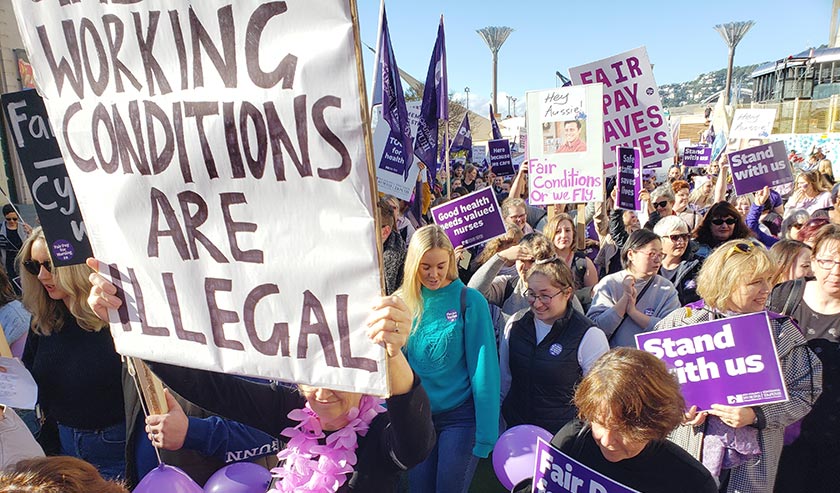
The DHBs claimed that NZNO either had or was failing to make adequate provision for the maintenance of life preserving services (LPS) to cover strike action.
DHBs also threatened legal proceedings over the issue in an attempt to force the withdrawal of lawful strike notices.
NZNO denied the DHB claims and declined to withdraw any strike notices. The DHBs then filed legal proceedings to have the matter decided by the Employment Court.
By way of brief background, whenever NZNO files strike notice in the DHB sector it is required by law to respond to any request from the DHB for assistance in maintaining LPS (generally being crisis intervention for the preservation of life or prevention of permanent disability).
Invariably such a request is made by the DHBs, and NZNO then enters into negotiations with each DHB to secure agreement on: The extent of LPS necessary to provide for patient safety during the strike; the number of NZNO members necessary to enable those LPS; and a protocol for the management of emergencies which might require additional life preserving services.
The DHBs claimed in court that when a DHB had concerns that NZNO would not deliver an agreed number of members for LPS, that DHB should be able to take precautionary legal action to ensure such numbers were provided.
The DHBs claimed NZNO’s stance of taking ‘all best endeavours’ to honour any agreement was insufficient and of itself a breach of good faith.
However, the court found in favour of NZNO and held that:
- An LPS agreement is not the same as, for example, a binding commercial contract, although a failure to comply by NZNO may give rise to a claim that NZNO has not acted in good faith.
- However, it is not open to a DHB to initiate legal proceedings to enforce an LPS agreement over a concern that the roster numbers provided may not be delivered by some agreed future date. Rather there needs to be an actual failure to deliver the roster numbers before enforcement could be considered appropriate. Even then a close examination of all the circumstances would be required to ascertain whether enforcement action is indeed warranted.
- NZNO’s position, that it will use its best endeavours to give effect to any LPS agreement while being mindful of members’ right to strike, is in accord with NZNO’s good faith obligations.
The court also awarded $20,000 to NZNO to cover some of the legal costs defending the DHBs’ claims.
While it is likely that LPS agreements may continue to be a source of tension during industrial action, hopefully the judgment opens the door to a more constructive and conciliatory approach by DHBs in future.
Jock Lawrie is an NZNO employment lawyer.




